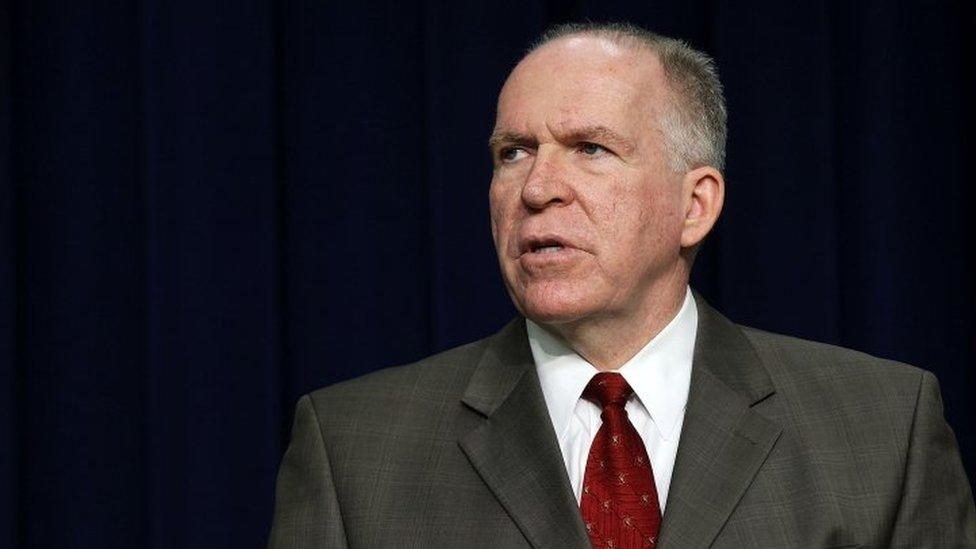John Brennan - the surveillance-era CIA director
- Published

John Brennan was reportedly considered for the top post at the CIA in 2008
John Brennan, who is to step down as director of the Central Intelligence Agency in January, has had a tenure characterised by revelations about surveillance practices by US intelligence throughout the world.
In the years since he succeeded retired Gen David Petraeus in March 2013, he has sought to put the case for government intrusions on privacy as a means of combating international terrorism.
Former US National Security Agency contractor and whistle-blower Edward Snowden revealed extensive internet and phone surveillance by US intelligence in 2013.
Meanwhile Mr Brennan was forced to apologise in the US Congress in March 2014 for monitoring the computers of Senate employees.
He has also had to defend methods used to obtain intelligence from detainees since the 9/11 attacks, following a scathing Senate report.
But though he has often faced criticism from liberals, he has made it clear he disapproves of such methods as waterboarding.
Just before leaving office, he was highly critical of some elements of President-elect Donald Trump's foreign policy agenda, including plans to dismantle the nuclear deal with Iran.
CIA director John Brennan tells the BBC what global threats Donald Trump will face as US president
Drones in spotlight
A member of President Barack Obama's inner circle and his top counter-terrorism adviser during his first term, the 61-year-old played a critical role in the planning of a May 2011 raid that killed Osama Bin Laden.
He also led the administration's efforts to curb the growth of terror groups in North Africa and the Middle East.
Mr Brennan is a veteran of the CIA, having spent more than 28 years at the agency in various posts including station chief in Saudi Arabia and deputy executive director in the administration of former President George W Bush.
But some liberals raised concerns over his involvement in what the government has called "enhanced interrogation techniques" - considered by some to amount to torture.
In 2008, Mr Brennan was reportedly considered for the top job at the CIA for the first time, but he withdrew his name amid criticism, while denying any connection to the interrogation methods.
At the time, Mr Brennan said in a letter to Mr Obama that he had been "a strong opponent of many of the policies of the Bush administration, such as the pre-emptive war in Iraq and coercive interrogation tactics, to include waterboarding".
In April 2012, Mr Brennan became the first member of Mr Obama's administration to make detailed public comments acknowledging the government's use of unmanned drones to carry out targeted killings.
Speaking to a think tank in Washington, Mr Brennan argued that the overseas attacks were legal, and protected the lives of Americans.
He also came under heavy criticism for his role in drone warfare during his Senate hearing in March 2013.